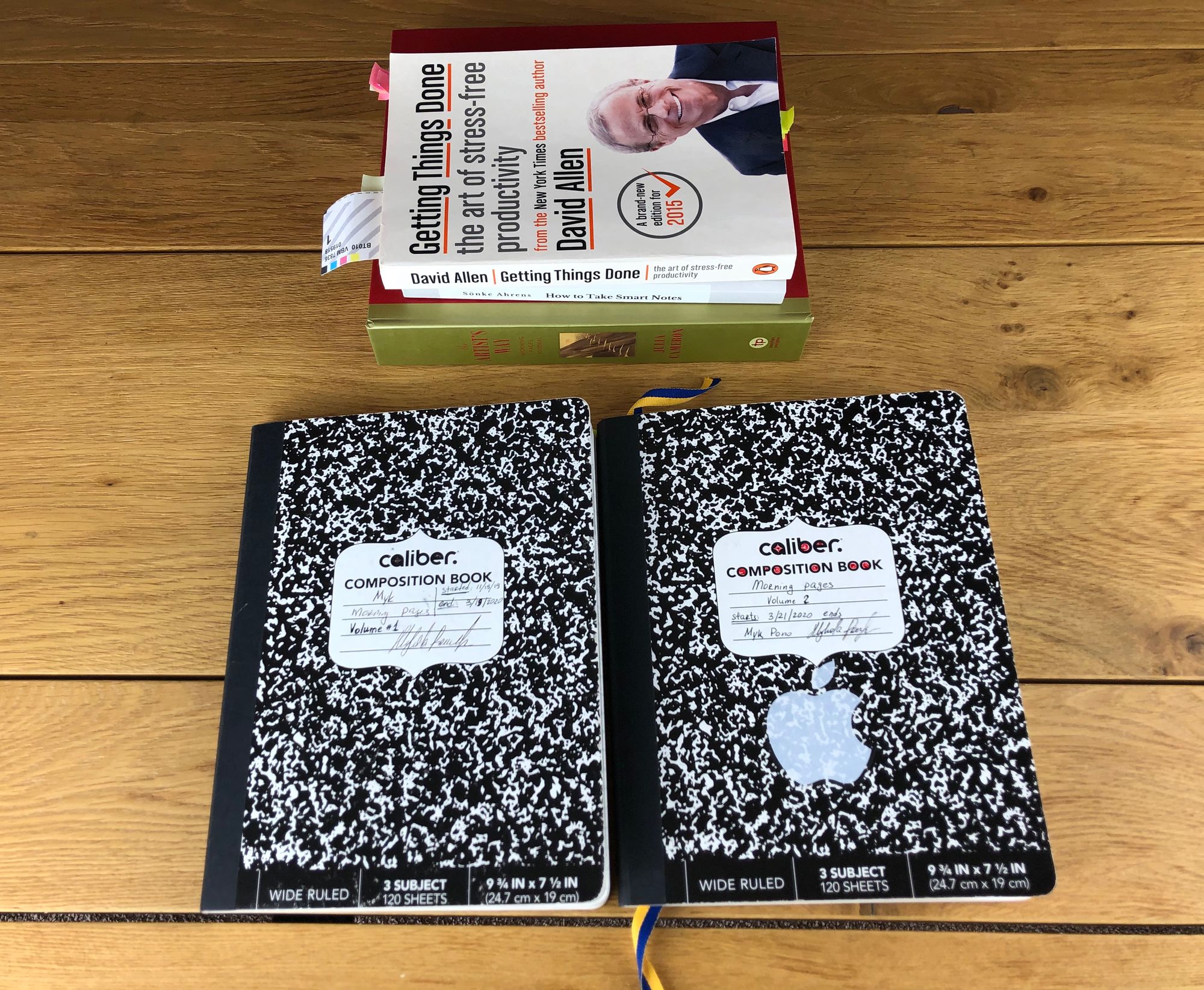
Writing weekly memos is a powerful habit that will raise your level of thinking and will improve your effectiveness. Your weekly memo is the way to clean your brain from everything that keeps you up at night.

Writing helps us think. When we write something down, we translate our abstract ideas into a structured form. When we can’t communicate something clearly in writing, we don’t yet understand it well enough. Writing is the process of thinking.
Last year, I started a habit of writing morning pages. The idea comes from Julia Cameron, the author of The Artist’s Way Workbook. Before you go about your day, you take about twenty minutes to write three pages in your morning journal. What should you write about? It doesn’t matter if you write three pages without taking your hand off the notebook.
At first, it feels awkward. You write about your dreams, worries, thoughts, previous day’s events, goals, and aspirations. You just keep writing everything that comes to your mind. Morning pages are not intended to be art or writing. The goal is to clear your mind of lingering thoughts. As Cameron puts it:
“Morning pages are not real writing. They are simply the siphoning off of the mind’s surface so that we can get to the deeper thoughts and impulses that lie beneath our daily voice-over.”
Writing morning pages is a very meditative process. You remove the obsessive thoughts from your mind by putting them on the page. Before the habit is fully formed you may struggle to get to three pages every morning. But after a couple of weeks, it becomes second nature. You will look forward to writing your morning pages because it feels like clearing and calming your ever-noisy mind.
The same is true in our professional lives. We keep multiple projects, initiatives, and goals in mind. And if we don’t write them down they eat into our ability to focus on the present — the task at hand. They cloud our mental operating system. The Getting Things Done (GTD) methodology created by David Allen was designed to enable stress-free productivity. The main idea is to write down your to-do items then use a systematic process for prioritizing and managing them. Similarly, Atul Gawande, in his best selling book Checklist Manifesto, argues that writing things out in a simple checklist not only helps you focus your mental energy on the task at hand but also reduces the number of mistakes and errors you make.
Writing a weekly memo can be another powerful habit to improve your productivity and focus. I started writing a weekly memo a few weeks ago and it has changed everything. It helps me stay focused and communicate better across the organization.
What should you write about in your weekly memos? As with morning pages, your weekly memo is a way to get your pressing items out of your mind and onto the page.
Let me share a few ideas.
Did you learn something this week? Every week is an opportunity to learn something, even if it seems small and unimportant. Take note and discuss it in your weekly memo. For example, last week I noted that before I come to a meeting where I want to present an idea or make a decision, I will first try to write an outline of the main points and data that supports it. Use your weekly memo to write about what you have learned this week. Did you talk to your customer and get an important insight? Did you find a better way to manage your meetings? Did you learn something about your team processes that you want to improve? There is always something to learn. By writing down your learnings you not only keep them out of your mind but also feel a sense of accomplishment. This week you have learned something that will help you become 1% better.
Did you or your team make decisions this week? A weekly memo is a perfect place to archive and reflect on them. We often forget about the small choices we make, but if we don’t track those decisions, we can’t evaluate their effectiveness. Writing down your decisions is a great habit not only for tracking their effectiveness but also for keeping your team aligned. At the same time, you might have an important decision to make at the next team meeting or on the next quarterly call. A weekly memo is a good place to start summarizing why a decision needs to be made, how it will be implemented, and what we will do to track its effectiveness.
Train your decision process in writing.
What are the issues and obstacles that keep you up in mind? When we write about our current problems, we are forced to prioritize them. Not all problems are worth solving or even need to be solved. Sometimes, when you outline a problem in writing, you find that this problem isn’t really a problem. Some constraints can be a powerful creativity boost.
Share your challenges in writing.